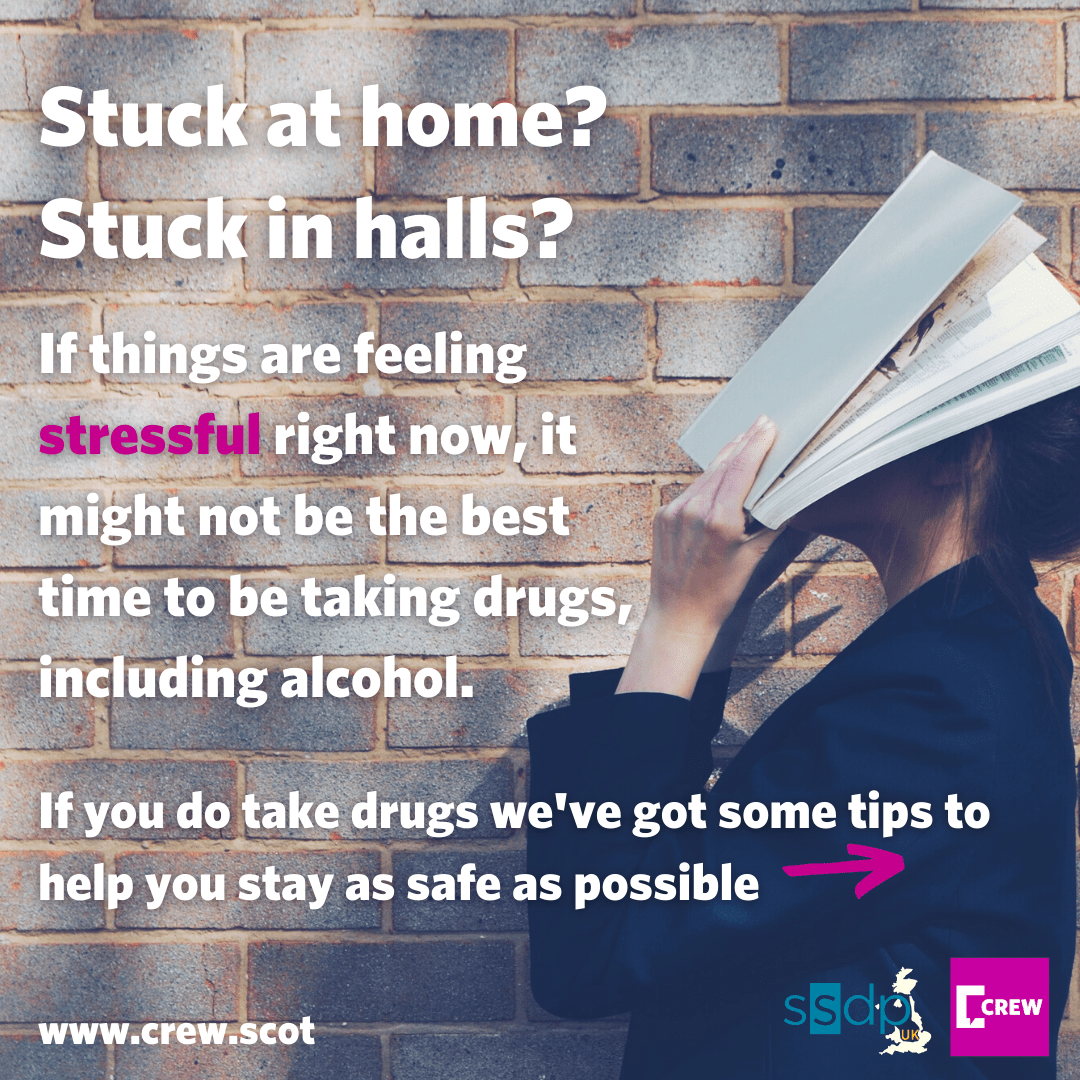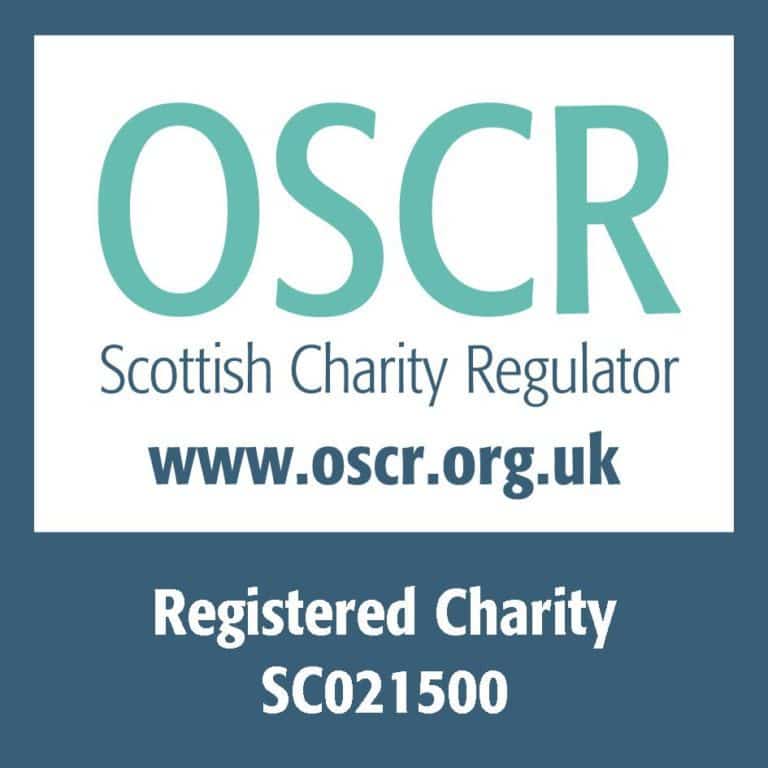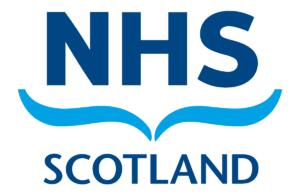When the COVID-19 outbreaks on university campuses were announced, thousands of students faced the prospect of being locked down in their student accommodation. Students across the country experienced a very different Fresher’s week to usual, and after an already challenging year this new situation may have felt like a setback and caused worry for many.
With all that stress it may not be the best time to take alcohol or other drugs, however it is important for those that chose to, there is access to credible and relevant information about how to stay as safe as possible.
We shared some special harm reduction advice and information for students in Scotland on our social media which was then adapted for a UK wide audience in partnership with Students for Sensible Drug Policy UK.
Stuck at home? Stuck in halls?
If things are feeling stressful right now it might not be the best time to take drugs, including alcohol. If you do take drugs, we’ve got some tips to help you stay as safe as possible.
Partying this weekend?
- Stay within your household/social bubble
- Avoid crowded spaces/house parties
- If you are in the pub avoid mixing with other households
- Wash your hands regularly for 20 seconds
- Avoid sharing drinks, vapes, snorting tubes or any baggies of drugs
- Plan doses in advance – start low, go slow
- If you are taking drugs tell people around you what you have taken, how much and when
- Read up on harm reduction on our website and share the information with your pals
- Remember to eat well and stay properly hydrated
Stay Safe
- Chat to your housemates about social distancing and make sure everyone feels comfortable with each other’s activities (e.g. how big your social bubble of contact has been)
- Try to have at least 2 days per week that are alcohol and other drug free
- Take it easy – remember that your tolerance to alcohol and other drugs may be lowered. Start low and go slow!
- Avoid mixing different drugs including alcohol and medicines as this can cause dangerous, unintended or unpredictable effects
- Sleep keeps us healthy – make time for it
- Avoid spending more money than you can afford on partying – rent and healthy food should come first
- Practice safe sex and make sure consent is front and centre of any activity!
Taken too much?
Know the signs of a stimulant (cocaine, MDMA, speed) overdose:
- Seizures/fitting/rigid muscles
- Hyperthermia (red-hot skin, overheating)
- Severe nausea and vomiting
- Rapid heart rate/chest pains/heart attack
- Difficulty breathing
- Hallucinations/anxiety/fear/panic
Know the signs of a depressant (alcohol, Valium/Xanax, GHB, ketamine) overdose:
- Unconsciousness
- Severe nausea and vomiting
- Seizures/fitting
- Difficulty breathing/snoring/raspy breathing
- Blue/pale tingeing of knees, hands and lips
- Slow or erratic heart rate
- Pale, cold and clammy skin
In an emergency, get help and…
- Keep calm
- Call 999 (or 112) – don’t worry about any legal consequences. The priority for the emergency services is preservation of life.
- Give as much information as possible including: location, age, gender, what happened. Be honest about what they have taken
- Stay with the casualty
- Distressed? Sit them somewhere calm and give reassurance
- Fitting? Keep the area safe – move anything that could hurt them
- Overheating? Take them somewhere cooler, loosen tight clothing, cool them using fans or wet towels and give them small sips of water
- Unconscious? Put in the recovery position (or on their side) and monitor breathing
- Stopped breathing? Perform CPR (chest compressions and rescue breaths)
- If you think opioids may be involved (e.g. they have taken heroin/codeine or are on a methadone prescription) administer naloxone
In an overdose, keep them safe but don’t…
- Leave them alone
- Inflict excessive pain to wake them
- Give any other drug
- Encourage them to vomit
- Give them anything to eat or drink (apart from small sips of water)
- Put them in a bath/shower
- Walk them about
- Attempt to restrain them
Look after your head
- Take care of your mental AND physical health
- Find out how your university or college can support you and learn about the services they offer
- Maintain meaningful connections with people who make you feel good
- Look out for each other and check in on those around you
- Try out new activities offered by your university or college
- Ask for help if you are struggling – whether that means getting in touch with your family, friends, lecturers or student support services
- Get in touch with your student union reps to discuss any issues you might be having
- Visit www.thinkpositive.scot for more info on student mental health
You can find a PDF of the graphics to print here: Harm Reduction for Students September 2020
Download the individual graphics to share on social media here.
Looking for more info on drugs and how to reduce the risk? Visit our Get Our Stuff page. Can’t find what you are looking for? Get in touch!






